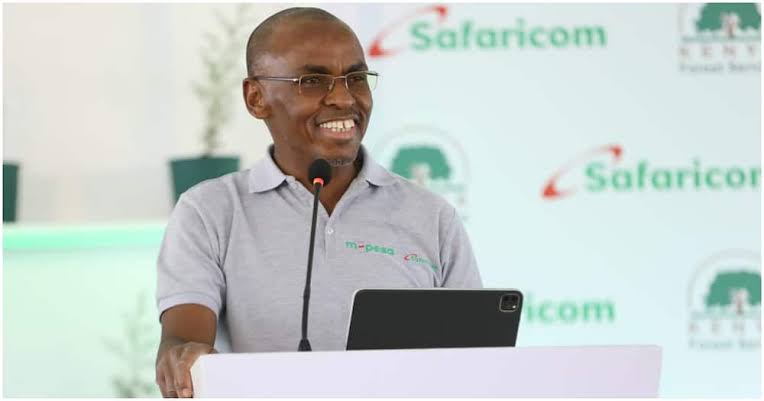Safaricom, the largest communications company in Kenya, has released a new payment service that lets customers pay for goods and services with mobile data.
The new service, called “Lipa na Data,” lets Safaricom prepaid customers with at least 5GB of data on their accounts pay for goods and services. Also, prepaid users with packs of more than 5GB that don’t expire can use this service.
Users will have to use their Safaricom phone to dial *544*34#. They will then be asked to pay the amount they typed in via the till numbers or pay their bills.
When the user calls the payment request code, the bundle calculator tells them how much their bill is in Kenyan shillings for their data bundle and asks if they want to pay or not.
For example, 500 Megabytes of mobile data cost 32.50 Shillings, and 2,000 Shillings are equal to 30,769.23 MB (30.8GB).
Users can’t use this service past the dialling code, though, if they don’t have enough data balance. They will get a message back that says, “You are not qualified to use this service.”
Safaricom’s innovative services and product offerings have helped them retain and gain consumers.
The telco behemoth is also aggressively optimizing revenue. In April, Kenya’s 21 countries got 5G network coverage, and last month, businesses got Fuliza overdrafts.
As of 2020, Safaricom dominates 64.5% of the Kenyan market, with 35.6 million subscribers. Safaricom has a 69.2% voice and 92.2% SMS market share.
Read also: Ethiopia’s Safaricom secures $1 billion
Safaricom Rules Kenya
Safaricom was started in 1997 with the goal of making people’s lives better. The telecommunications giant sees mobile telecommunications and the goods and services that go with it as a unique chance to improve the quality of life and help Kenyans, and others make a living in a sustainable way.
Kenya’s economy is still being helped by the company. In the year that ended in March 2020, the corporation added KES 654 billion, or 6% of Kenya’s GDP, to the economy. This made it clear that it was the biggest contributor.
In the same year, the company made more than KES 71 billion and paid more than KES 110 billion in taxes.
Forbes Global 200 called Safaricom the best place to work in Africa and the 67th best place in the world. In 2020, Safaricom had 4,500 full-time employees and 1,900 contract workers.
In March 2018, the company was named the best place to work in Kenya by Brighter Monday.
Safaricom’s Fintech Growth M-PESA
In 2007, Safaricom started M-PESA, a tool for mobile money transfers, small loans, and microfinance. M-PESA was made to save money on cash-handling costs by letting people pay back microfinance loans over the phone.
After the test, it became a way for people to send money to each other. Since then, Safaricom M-PESA has grown to cover 12 African countries and three countries outside of Africa.
It helps about 51 million people every month. It lets people send money to each other, get money from an ATM, make payments, make payments in bulk, and send money from a bank to M-PESA.
By December 2011, the financial site had 17 million users in Kenya.
The growth of M-PESA made established banks pay attention. For the first 11 months of 2014, M-PESA trades were worth KSh.2.1 trillion, which is up 28% from 2013. This is about half of the country’s GDP.
In September 2021, the Communications Commission of Kenya said that 29.1 million people, or 63% of the population, were using M-Pesa. Kenyans used M-Pesa to send and receive KSh 5.1 trillion (about $47 billion) in September 2021.
Kenya’s business has also been helped by M-Pesa. The World Bank says that M-Pesa has added 2% to Kenya’s GDP since 2007. Studies show that 185,000 Kenyans work for M-Pesa.
M-Pesa’s fame in Kenya has spread to Tanzania, Mozambique, India, and Romania.
